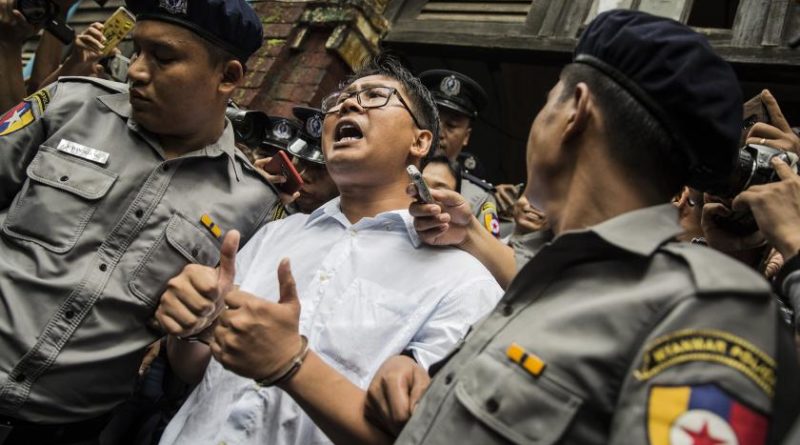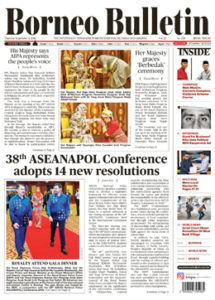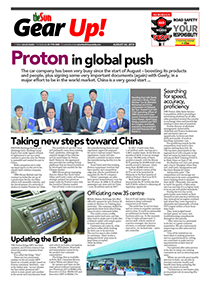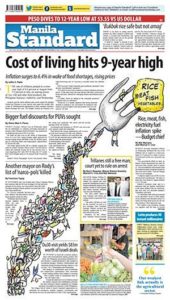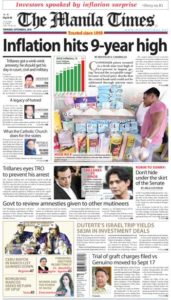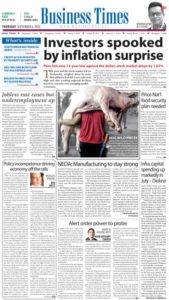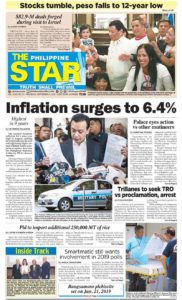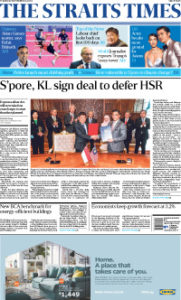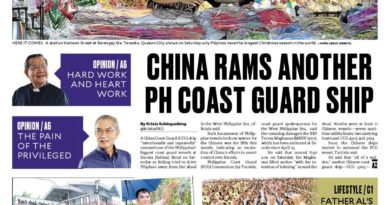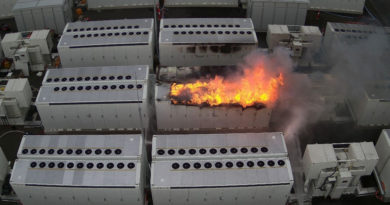ASEANews HEADLINE: Rakhine crisis and Reuters verdict merit investor attention: Singapore think tank
Reuters reporters Wa Lone (pictured) and Kyaw Soe Oo were convicted by Myanmar’s court. Photo: Zarni Phyo
.
“There is need for the Myanmar government to respond effectively to the crisis, to increase access and transparency, and to be forthcoming when engaging with the international community.”
The northern Rakhine crisis and sentencing of Reuters reporters merit investor attention, a think tank said at an investment forum in Singapore, while a senior Myanmar official admitted that he underestimated the economic impact caused by the humanitarian nightmare.
Singapore Institute of International Affairs (SIIA) chair Simon Tay said that there is “a pressing need for the Myanmar government to respond effectively to the crisis by increasing access and transparency, and moving ahead with the recommendations of the Kofi Annan report.” The investment forum was held yesterday at the Singapore Exchange (SGX).
At the forum, U Aung Naing Oo, Directorate of Investment and Company Administration (DICA) director general, admitted that Myanmar had “totally underestimated” the economic and FDI impact of the Rakhine crisis. He said the country is now aware that this has been a barrier for many potential investors. The DICA chief told Reuters that the 7-year sentence of the two reporters for their investigation in Rakhine would be a factor Western businesses would take into account when making investment decisions. “Not only the international community but also … some of the local communities are not happy with the decision so therefore that will have some impact on our reputation,” he was quoted saying.
Two defining issues
Professor Tay elaborated on Myanmar’s increasingly disappointing economy. “Myanmar is in the midst of an economic downturn,” he said. U Thaung Tun, Myanmar Investment Commission chair, recently commented that foreign investment in the country dropped by nearly $900m in 2017-18, compared to 2016-17. In addition, inflation is rising rapidly, and hit 7.56 percent between May and July this year, compared to 5.9pc during the same period in 2017. The national currency Kyat has also depreciated rapidly against the US Dollar, rendering imports necessary for infrastructure development more costly.
Politically, the “highly critical” report released by the UN fact-finding mission commissioned by the UNHCR, as well as the Reuters court verdict “merit attention by the Singapore business community”. “While Myanmar’s potential is great, Singapore based businesses and investors need to think long term and consider the risks and responsibilities,” Professor Tay went on. Investment into the country has correspondingly slowed in the face of mounting international pressure. Singapore is either the first or second largest investor in Myanmar, with a total of US$19.3 billion across 286 projects.
The SIIA chair said “What is needed, as recognised by the Annan report, is for Myanmar to grant access,” but warned that widespread sanctions and boycotts will “risk hindering development prospects for the many millions of ordinary citizens in the country” while not helping the Muslim refugees who fled.
“It is right to recognise that there is need for the Myanmar government to respond effectively to the crisis, to increase access and transparency, and to be forthcoming when engaging with the international community,” he stressed. While current targeted sanctions are limited in their reach, the controversy will cause concern about reputational risks and activist shareholders for some foreign investors. Therefore, “moving forward with the Annan report would be a strong signal” of Nay Pyi Taw responding and engaging with broader circles.
Meanwhile, Sean Turnell, economic adviser to the State Counsellor, highlighted the upcoming Myanmar Sustainable Development Plan. “The National Economic Coordination Committee, headed by Daw Aung San Suu Kyi herself, has been created and that is a massive step towards more cohesive governance,” he commented.
Investment activities
There remain a lot of economic activities in the country, Ong Chao Choon from PwC Myanmar emphasised. Examples cited include Myanmar’s four telcos which have thrived, and significant deals such as Kirin’s purchase of a 55pc stake in Myanmar Beer, valuing the company at US$1bn; Unilever’s joint venture with Europe & Asia Commercial Company (EAC), which yielded a combined business turnover of US$150m; as well as equity firm TPG’s stake purchase of Grand Royal Whiskey, which it subsequently sold to ThaiBev only two years later, and thereby more than tripling its return.
“TPG, as one of the largest private equity funds, had evaluated the attractiveness of the business and that is a testament to the viability of investing in Myanmar,” Mr Ong continued.
Melvyn Pun, CEO of SGX-listed Yoma Strategic, stressed that there are “many bright spots” and caution against pessimism.
“We had in fact been hunting for acquisitions for some years but valuations were frothy. Now, however, with the slowdown, valuations have become more realistic and we are finding it a much better environment to do deals,” he remarked.
With the slowdown, valuations have become more realistic and we are finding it a much better environment to do deals. – Melvyn Pun, Yoma Strategic
For Mark Bedingham from Singapore Myanmar Investco, tourism and retail are among the areas which have significant growth potential. “Generally European travellers come to Myanmar for the historical and archaeological features; yet shopping malls are still important, not only for the locals but Asian tourists too,” Mr Bedingham observed. /
 All photographs, news, editorials, opinions, information, data, others have been taken from the Internet..aseanews.net | [email protected] / For comments, Email to : Aseanews.Net |
All photographs, news, editorials, opinions, information, data, others have been taken from the Internet..aseanews.net | [email protected] / For comments, Email to : Aseanews.Net |

